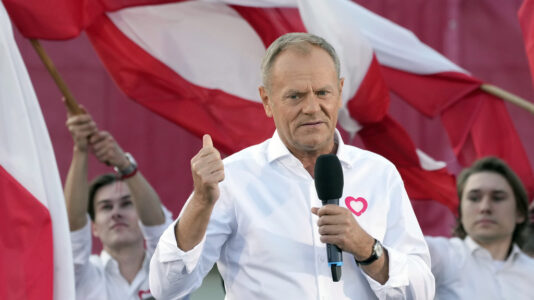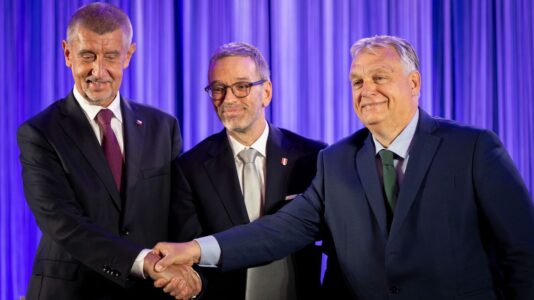In a bold move just days ago, the Bulgarian parliament passed legislation that prohibits the promotion of LGBT ideology in schools. Interestingly, this bill received overwhelming support from Bulgarian lawmakers, despite fierce criticism from the UN Human Rights Office and the European Union.
Upon hearing this news, two thoughts immediately crossed my mind. First, it is striking that a country within the European Union and NATO can still exercise true sovereignty, prioritizing the protection of its citizens — especially children — from the relentless push of rainbow propaganda.
Second, and more disheartening, is that Bulgaria managed to do what Poland could not achieve during eight years of conservative Law and Justice (PiS) rule. Despite all the loud rhetoric and endless posturing, Polish right-wing politicians have proven less courageous and less prudent than their Bulgarian counterparts. Fearful of the EU’s reaction and lured by promises of financial rewards, Poland has failed to enact crucial legislation that would protect parents from the influx of rainbow propaganda and pseudo-sex educators. As a result, Polish parents remain defenseless against the dominance of LGBT activists, while Bulgarians, like the Hungarians before them, now have laws they can rely on when facing the pressures of the EU and multinational corporations.
So far, the Bulgarians are also withstanding Western pressure, with their president already signing the bill into law. Liz Throssell, a spokesperson for the UN Human Rights Office, was quick to urge Bulgarian authorities to “reconsider the law in light of the country’s international human rights obligations.” This suggests that the UN will continue pressuring Bulgaria’s government and parliament to revise their stance. Why? Because the UN has long been one of the leading promoters of what it calls “international human rights,” which, in bureaucratic jargon, now often translates into pushing rainbow ideology. According to these so-called rights, a child’s declaration of gender or orientation, influenced by propaganda, should take precedence over a parent’s right to raise their own child.
However, the UN isn’t alone. Bulgarian LGBT activists have already claimed that the new law is inspired by Russia and has “found its way into the heart of Europe.” This tactic is familiar: Whenever society resists the ongoing ideological revolution, it’s portrayed as stemming from Putin’s influence. The method is simple. Silence conservatives and force them into submission by labeling them as unwitting allies of Russia. Anyone who dares to resist the Western progressive agenda is painted as a stooge for Putin.
The European Commission also got involved, sending a letter to Bulgaria’s minister of education and science, Galin Tsokov, “requesting further information on the legislation.” In Brussels, the bureaucrats reiterated their unwavering commitment to fighting discrimination, inequality, and the challenges faced by LGBTIQ people — including in education — under their LGBTIQ Equality Strategy of November 2020.
It’s a chilling reminder. If the European Commission had a sufficient military force, we might be seeing troops marching to Bulgaria’s borders instead of mere letters being sent. However, the threats from EU officials should not be dismissed lightly. It is difficult to predict what methods they will use, but one thing is certain – they won’t let this issue go. Gender ideology is one of the key pillars of the EU’s leftist project, serving as a tool to reshape the consciousness of societies and dismantle the fundamental social bonds that sustain nation-states, which include historical continuity, generational pride and a sense of identity.
Supporting Bulgaria’s fight for cultural sovereignty is crucial. Perhaps one day, Poland will see the rise of a force that recognizes the extreme threat that LGBT propaganda poses to our nation’s future and has the courage to confront it effectively.






